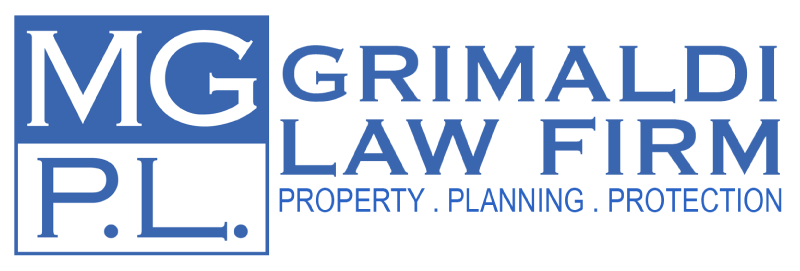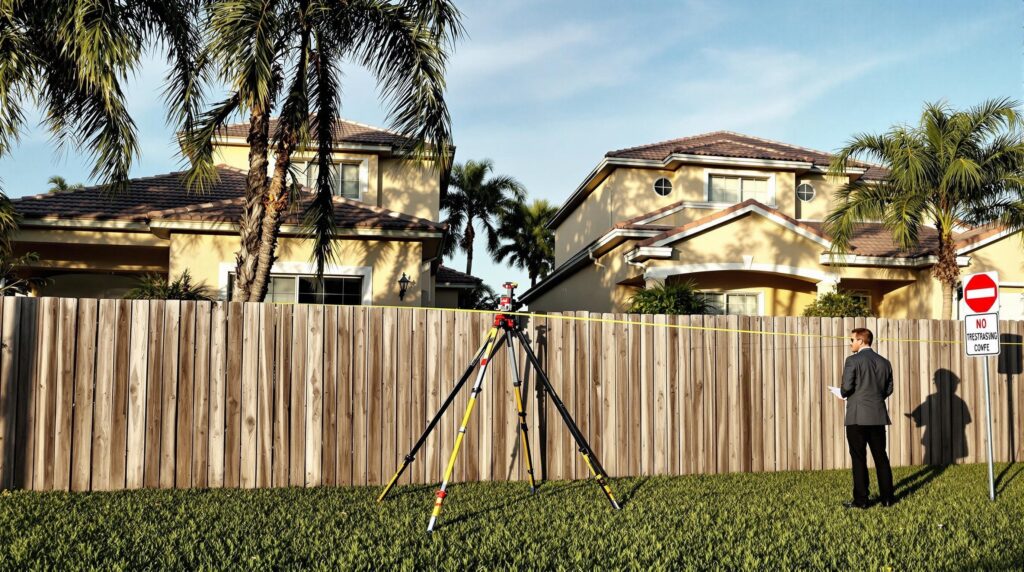Property fights in Broward County can be fixed in several ways, both in and out of court. People often clash over where their land ends, who can use paths through properties, and breaking building rules. Local helpers who step in to settle fights cost less than going to court, though you can still take bigger problems to a judge. Before doing anything, property owners should get their land properly measured and keep all papers that show what they own and what happened. The county has clear rules about what you can build and how you can use land. When someone breaks these rules, courts can make them pay money to fix the damage or punish bad behavior. Knowing all these choices helps owners pick the best way to solve their problem.
Key Takeaways
- Broward County encourages mediation as the primary dispute resolution method, offering faster and more cost-effective solutions than court litigation.
- Property owners must obtain professional land surveys to establish accurate boundary lines before pursuing legal action.
- Local zoning regulations govern property disputes, requiring compliance with building height, setbacks, and land use restrictions.
- Alternative resolution options include county-supported neighbor discussions and arbitration programs that maintain confidentiality.
- Courts provide financial recovery options for property damages, including compensatory awards and attorney fees when mediation fails.
Common Types of Property Disputes
Property fights in Broward County usually happen in a few main ways, often between neighbors, renters and landlords, or property owners and city officials. The biggest fights are about where property lines and fences should be, with owners arguing about exact boundaries. Rights-of-way cause trouble when people clash over who can use them and who should take care of them. Problems also pop up when someone uses land without permission, including cases where people try to claim land by living on it without asking. Other common fights start when water from one yard flows into another, when people break homeowners’ association rules, and when trees grow over property lines. People also get into disputes when they build things without proper permits or break local building rules in Broward County.
Mediation and Alternative Resolution Options
When neighbors have disputes about property in Broward County, they can try several helpful ways to solve problems before going to court. Working with a mediator saves money, gets results faster, and helps keep neighbors on good terms. A mediator can help people talk through their disagreements about property lines, shared access ways, and upkeep issues in a fair setting. Property owners can also choose other ways to settle their disputes, like working with an arbitrator, using team-based legal help, or joining local problem-solving programs at the Broward County Courthouse. These choices often let people meet at better times, keep things private, and find answers that work for everyone better than going to court would. With help from mediators who know local property rules, people can reach firm agreements while staying away from the fighting and high costs of court battles. More and more Broward County residents are picking these options to solve their problems.
Local Zoning Laws
Zoning rules in Broward County set clear limits on how people can use, build on, and change their property in homes, businesses, and factory areas. These rules control how tall buildings can be, how far they must be from property lines, and what activities are allowed in different areas. If property owners want to do something different from these rules, they need to ask for special permission from the county’s building and environment office. Property owners must:
- Follow the rules for their specific area
- Get building permits that match zoning rules
- Only run businesses that fit their area’s rules
- Fix problems and pay fines if they break the rules
These rules matter most when property owners want to make changes, add to their buildings, or use their property differently. The county’s overall plan for land use works with these rules to help the area grow in an organized way and keep property values steady.
Boundary Dispute Resolution Process
When neighbors in Broward County disagree about where their property lines are, they follow clear steps to fix the problem. First, they need to hire a land expert to measure and mark the true property lines. This helps show if fences are in the wrong place or if someone is using land that isn’t theirs. After getting proof from the survey, neighbors must try to work out their problems by talking with a helper from the county. This required step often saves money and keeps neighbors friendly. If they can’t reach an agreement by talking, property owners can take their case to the Broward County court. The court looks at the survey results, property papers, and old records. Then it makes choices about where property lines should be, who can use what land, and what changes need to be made if someone built something on their neighbor’s property.
Legal Documentation Requirements
To settle property disputes in Broward County, you need three main legal papers: a new land survey from the past year, original property deeds that show who owned the land over time, and any written deals about property lines between neighbors. You must give two copies of each paper to the Broward County Property Appraiser’s office for them to check and approve. You need:
- Original deeds that show who has owned the property, with official stamps from the County Clerk
- New property maps drawn by licensed Florida surveyors that show exact property lines and anything that crosses those lines
- Papers signed by a notary about rental agreements or other property rights
- Papers that show past arguments about property lines and how they were fixed
You can also include tax papers, mortgage papers, and homeowner group rules that might affect property lines or how the land can be used.
Property Rights Enforcement
To protect your property rights in Broward County, you’ll need proper paperwork and must follow set steps. Property owners need to watch over their land and buildings by using the right legal tools, such as stopping others from using their land without permission or preventing squatters from claiming ownership.
| Action | What It Does |
| Code Enforcement | Stops rule-breaking on properties |
| Taking Legal Action | Fixes land border and ownership fights |
| Court Orders | Stops ongoing misuse of property |
| Sheriff’s Office | Removes unwanted people |
The process usually starts by sending a written warning to someone who’s breaking the rules, then trying to work things out through the county’s problem-solving services. If talking and warnings don’t work, property owners can take their case to the Broward County Circuit Court, which handles property fights, border issues, and rights-of-way problems.
Court Procedures and Timelines
Property disputes in Broward County courts follow clear steps and deadlines. The process starts when you file papers with the court, and in most cases, you must try to settle through mediation first. When showing proof in court, you need to follow rules closely and turn in all papers on time. You usually have 20 to 30 days to file court papers after getting notice of a property dispute. The time for gathering facts and information takes 3-6 months, based on how complex your case is. You must finish mediation within 90 days of filing before the court sets a trial date. When showing proof in court, you need to make sure it’s real and turn it in at least 20 days before your hearing. You need to stick to these deadlines to keep your case going and avoid having it thrown out. Most people need help from a lawyer who knows Broward County property laws to handle the court process well.
Cost Recovery and Damages
Property owners in Broward County can get money back through the courts for their losses. They may receive money to cover their actual costs and extra money to punish those who caused harm on purpose. Courts look at proof and records before deciding how much money to give.
| Damage Type | Purpose | Common Examples |
| Compensatory | Actual Loss Recovery | Property Repairs |
| Punitive | Deterrent/Punishment | Malicious Actions |
| Special | Specific Costs | Survey Fees |
Owners can ask for money beyond just fixing property damage. This includes lawyer costs, moving to a temporary home, and loss in property value. To win their case, owners need to keep good records of all costs and losses. Courts might also add interest to the money owed, counting from when the damage happened until the final decision.
Frequently Asked Questions
How Long Do I Have to File a Property Dispute Claim in Broward County?
You have four years to file most property dispute claims in Florida after a problem starts, but the exact time limit can change based on what kind of claim you’re making.
Can I Sell My Property While Involved in an Ongoing Dispute?
You can sell your property during a dispute, but it won’t be simple. You need to tell any buyers about the ongoing problems, and this might make it harder to sell. The dispute could scare away some buyers and affect how much money you can get for your property.
What Insurance Coverage Applies to Neighbor Property Damage Disputes?
Your home insurance usually helps pay for damage to your neighbor’s property, but not in all cases. The insurance won’t pay if you damaged things on purpose, if the damage happened slowly over time, or if the problem is about property lines. Check your insurance papers to know exactly what your plan covers.
Are Property Dispute Settlements in Broward County Public Record?
Property fights settled in court become public information that anyone can see through Broward County’s record system. If people work out their problems through mediation instead, they can keep some of the details out of public view.
Can HOA Rules Override County Property Dispute Resolution Decisions?
HOA rules usually can’t overrule decisions made by county officials in property disputes. While HOAs can enforce their own rules within their community, city and county laws carry more weight when there’s a conflict. Local government decisions typically win out over HOA regulations in these situations.
Conclusion
If you have a property dispute in Broward County, you’ll need to follow certain steps to fix the problem. Start by gathering all your paperwork and making sure your property lines are correctly marked. You’ll also need to check local rules about how land can be used. Most property fights can be worked out either by talking things through with a mediator or by going to court. It’s smart to hire a lawyer who knows property law to help you. The sooner you deal with these issues, the better chance you have of solving them without spending too much money or hurting your property’s worth. Just remember to file any complaints or papers on time and keep copies of everything. Need help with your property dispute? Contact Real Estate Law Fl today for expert guidance and protect your property rights.

